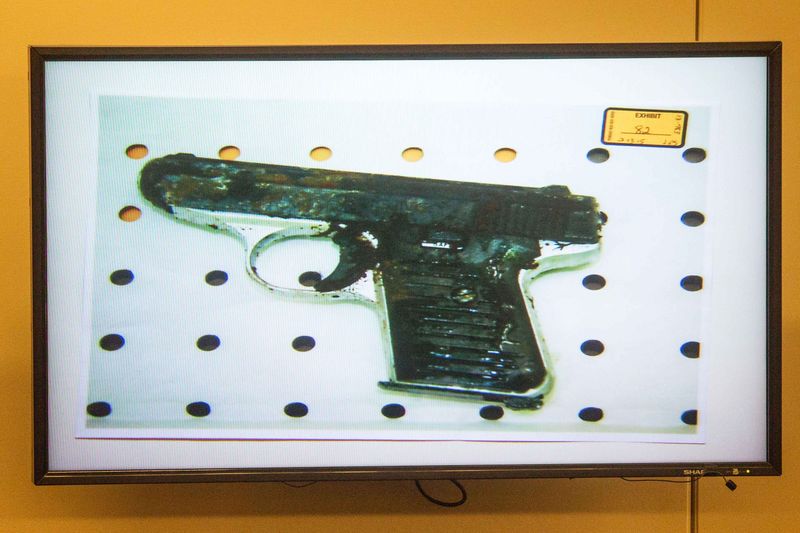By Elizabeth Barber
BOSTON (Reuters) - Attorneys for former New England Patriots star Aaron Hernandez questioned on Wednesday whether police followed their own rules when they gathered evidence being presented at the first of two murder trials he will face this year.
Defense questioning focused on a wad of chewed bubble gum and a .45-caliber shell recovered from a rental car the former tight end had returned the day that semiprofessional football player Odin Lloyd's bullet-riddled body was found in an industrial park in June 2013.
Hernandez, 25, is on trial in Massachusetts Superior Court in Fall River on charges of fatally shooting Lloyd in an industrial park near the former NFL star's North Attleborough, Massachusetts, home.
North Attleborough Police Detective Michael Elliott testified that he and other officers found items including the chewed piece of gum and the shell in a dumpster after employees at a rental car agency cleaned out a car Hernandez returned on the day Lloyd's body was found.
Defense attorney James Sultan asked Elliot why he and fellow officers had dug into the trash on their own, rather than waiting for a squad of crime-scene specialists.
"Has anyone ever taught you to collect evidence in that way?" Sultan asked.
"No," Elliott responded.
Police have said the gum, which could contain DNA evidence, had been wrapped around the bullet casing when they first found it but became unstuck and were logged as separate pieces of evidence.
Investigators have not located the gun they say was used to murder Lloyd and the case against Hernandez weighs heavily on circumstantial evidence, including surveillance video of him coming and going from his home.
Defense attorneys this week have repeatedly tried to point out mistakes made in the handling of evidence.
Prosecutors say Hernandez and two friends, Ernest Wallace and Carlos Ortiz, picked up Lloyd at his Boston home before driving him to the North Attleborough industrial area where his body was found later that day.
Investigators say they found five empty .45 caliber shells near Lloyd's body, and that he had been shot six times.
Defense attorneys contend that the ex-NFL star and Lloyd were friends and that Hernandez, who has pleaded not guilty, had no reason to kill Lloyd.
If convicted, Hernandez faces a maximum sentence of life in prison.

Hernandez will face a second trial later this year on charges he killed two Cape Verdean men outside a Boston nightclub in 2012.